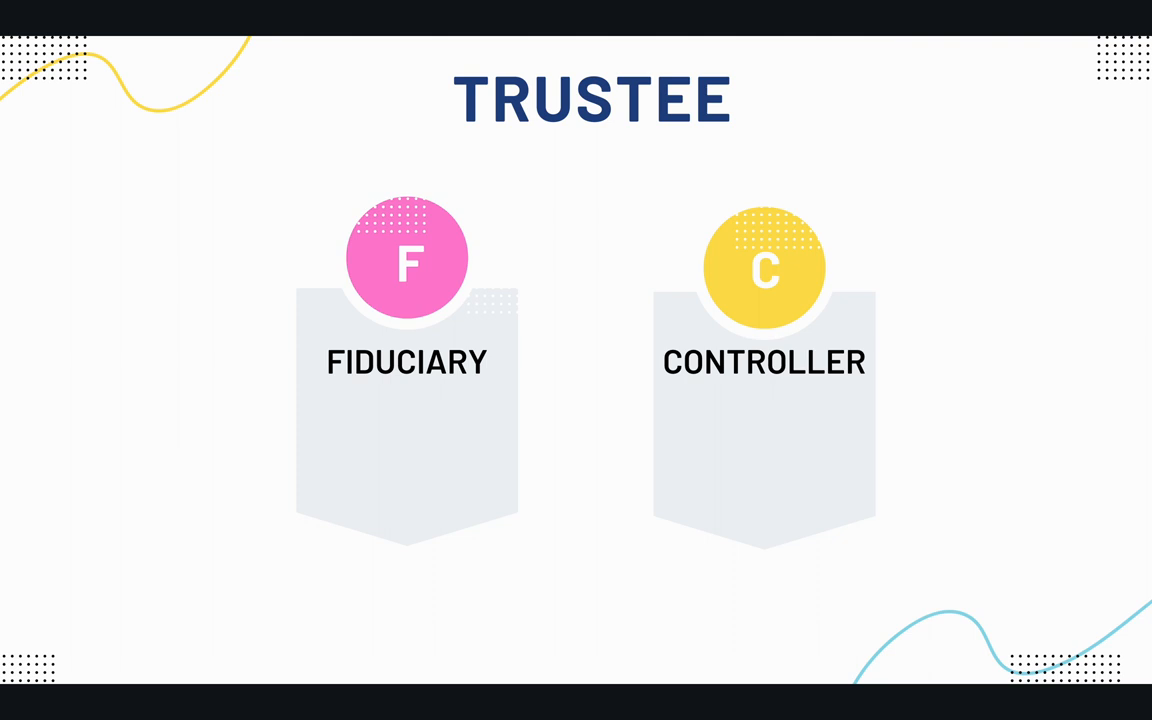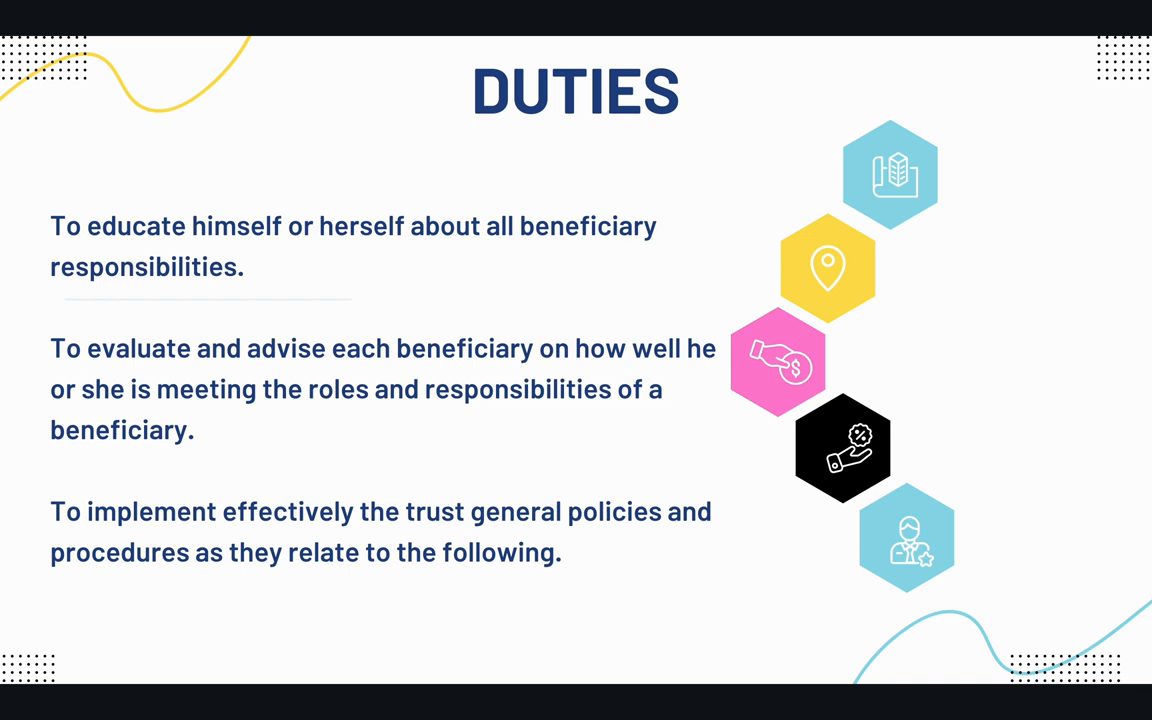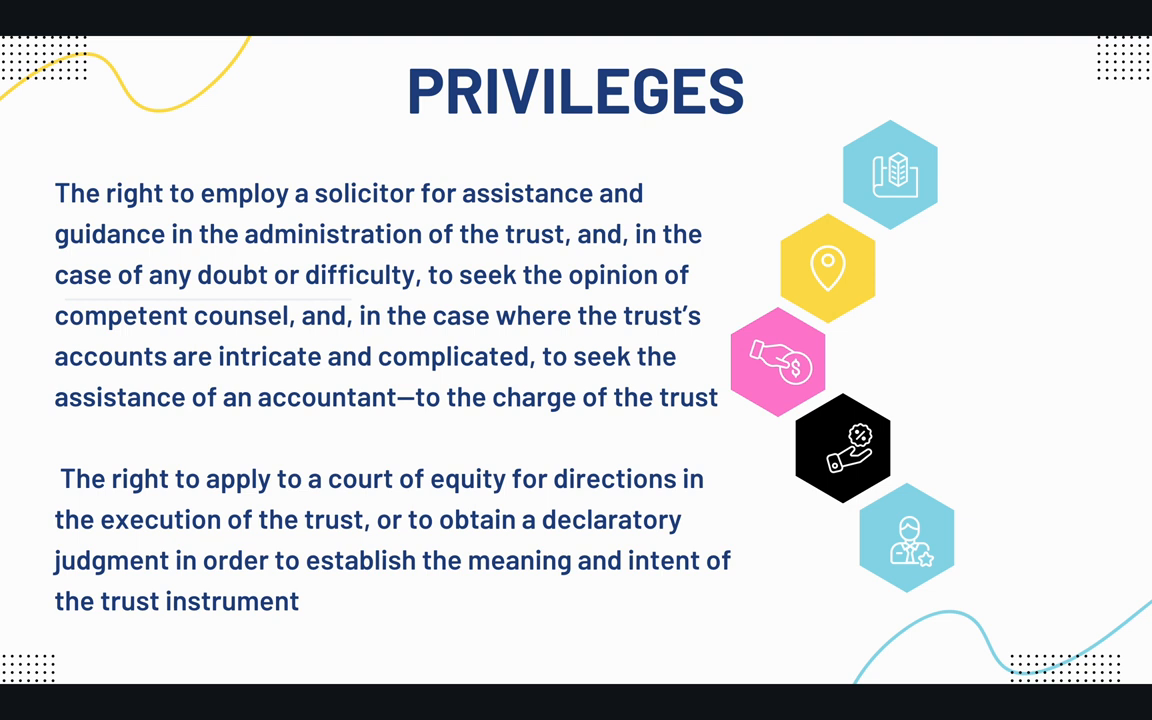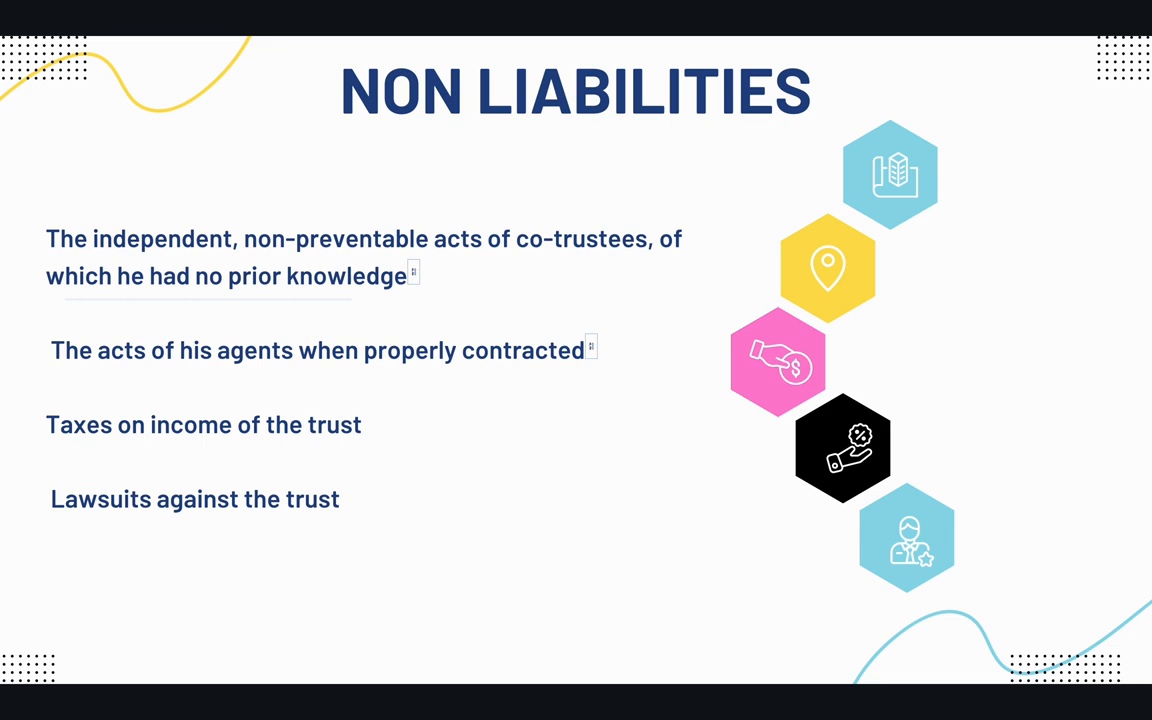BLOGS

Understanding Trusts: The Role of a Trustee
Understanding Trusts: The Role of a Trustee
Trusts are an essential part of estate planning, offering benefits such as asset protection, tax advantages, and efficient wealth transfer. At the core of the trust mechanism is a crucial figure: the trustee. This blog post delves into the roles, powers, duties, privileges, and liabilities of the trustee.

What is a Trustee?
A trustee is the fiduciary of a Trust, the person responsible for implementing the trust's guidelines and instructions. They are considered the control center of the Trust, wielding the power to buy, sell, and invest in the trust's name. They act as fiduciaries for the beneficiaries of the Trust.
A trustee can be anyone capable of legally owning something, thus qualifying to become a trustee. There's no limit to the number of trustees that may serve on a Trust, and they can act jointly as a collective body on the board of trustees, referred to as co-trustees.
Powers of a Trustee
A trustee is equipped with a robust arsenal of powers. These include:
Binding the trust in a contract, executing contracts on behalf of the trust.
Partitioning, exchanging, selling, pledging, or mortgaging the trust property.
Leasing the property, issuing, changing, or disposing of securities of the trust.
Supporting the beneficiaries in all reasonable manners.
Persecuting and defending in the trust name or the trustee's name.
Making gifts out of trust property.
Delegating unessential powers and duties.
Exercising personal judgment and any discretionary power not prohibited by the trust instrument.
In short, trustees have wide-ranging powers to manage the trust assets and ensure the beneficiaries' well-being.

Duties of a Trustee
The trustee's role carries a set of responsibilities aimed at ensuring the efficient operation of the trust. These include:
Ensuring familiarity with the trust's original and current purpose.
Guiding decisions based on the trust’s purposes.
Implementing mechanisms to enhance beneficiaries' financial literacy.
Meeting annually with each beneficiary.
Educating oneself about all beneficiary responsibilities.
Evaluating and advising each beneficiary on their roles and responsibilities.
Implementing effectively the Trust's general policies and procedures.
In essence, the trustee's duty is to act in the best interests of the beneficiaries, prioritize their financial education and ensure the trust operation's overall efficiency.

Privileges of a Trustee
Being a trustee comes with certain privileges. Among these are:
Full compensation, including reimbursement of out-of-pocket expenses.
The privilege to reside within the trust estate.
The right to employ a solicitor, accountant, or other professionals for guidance.
The right to apply to a court of equity for directions.
The right to carry on a separate business for the trust’s benefit.
The right to disclaim the office at the execution or resign at a later date.
These privileges empower trustees in fulfilling their roles and making strategic decisions for the trust.
Trustees' Liabilities and Non-Liabilities
Trustees have certain liabilities:
Liability on all contracts made.
Liability to removal for breach of trust or mismanagement.
Liability for losses sustained by the trust as a result of negligence.
Liability for torts and wrongs or acts of bad faith.
Liability for commingling of trust funds.
Liability for mischief of contracted agents.
However, trustees have certain immunities:
They are not liable for contracts where liability was properly limited.
They are not liable for the debts of the Trust or their own personal debts.
They have no liability towards independent non-preventable acts of co-trustees.
They are not liable for actions of agents when properly contracted.
They are not liable for the income tax on the trust.
They are not liable for lawsuits against the Trust.
Trustees are shielded from the trust's debts, protecting them from possible negative repercussions.

Understanding the roles, powers, duties, privileges, and liabilities of a trustee is vital in managing a trust effectively. The trustee's role is pivotal, laying the foundation for successful trust operations and ensuring the beneficiaries' best interests are served. Trusts, when administered skillfully by a diligent trustee, can be powerful tools for asset protection and generational wealth transfer.
